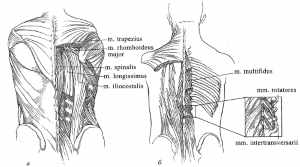Introduction into biochemistry
Biochemistry is the science concerned with the various molecules that occur in living cells and organisms and with their chemical reactions. Anything more than a superficial comprehension - demands a knowledge of biochemistry.
Biochemistry has advanced rapidly with the development, from the mid-20-th century, of such techniques as chromatography, x-ray diffraction, radioscopic labeling, electron microscopy, and amplificators, secvinators and etc. Using these techniques to separate and analyze biologically important molecules, the steps of the metabolic pathways in which they are involved (glycolysis, Krebs cycle, structure of genome) have been determined. This has provide some knowledge of how organisms obtain and store energy, how they manufacture and degrade their biomolecules, how they sense and respond to their environment, and how all this information is carried and expressed by their genetic material. Biochemistry forms an important part of many other disciplines, especially physiology, nutrition, and genetics, and its discoveries have made a profound impact in medicine, agriculture, industry, and many other areas of human activity.
Biochemistry can be defined more formally as the science concerned with the chemical basis of life (Greek - bios “life”).
The cell is the structural unit of living systems. Consideration of this concept leads to a functional definition of biochemistry as the science concerned with he reactions and processed that they undergo. By this definition, biochemistry encompasses large areas of cell biology, of molecular biology, and of molecular genetics.
The major objective of biochemistry is the complete understanding at the molecular level of all of the chemical processes associated with living cells.
A father objective of biochemistry is to attempt to understand how life began. Knowledge of this fascinating subject is still embryonic.
Enzyme A protein that acts as a catalyst in biochemical reactions. They greatly increases (by a factor of up to 1020) the rate at which the reaction proceeds to form the product.
Medical students who acquire a sound knowledge of biochemistry will be in strong position to deal with two central concerns of the health sciences: 1) the understanding and maintenance of health and 2) the understanding and effective treatment of disease.
Immunology –
Molecular biology
Molecular pharmacology
Molecular genetic (Genetic engineering, Biotechnology, Genetic therapy)
Дата добавления: 2022-05-27; просмотров: 94;










